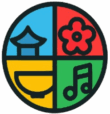For travelers from the U.S., Canada, or Europe, tipping is second nature. A meal at a restaurant often ends with calculating 15–20% extra, while hotel staff and taxi drivers expect a little something on top of the bill. But in Korea, this system doesn’t exist. The price you see is the price you pay—no math, no pressure, no awkward guessing games.
So, why doesn’t Korea follow the tipping culture, and how can you show appreciation the local way? Let’s dive in.
The Concept of Tipping in Korean Culture
Historically, Korea has valued 정 (jeong)—a deep sense of connection, community, and mutual respect—over monetary gestures. Workers are paid wages that aren’t reliant on tips, and good service is considered a standard part of the job, not something “extra” you need to reward.
For many Koreans, receiving an unexpected tip might feel uncomfortable or even confusing, as if the customer is implying the worker needs charity. This cultural perspective is what makes Korea refreshing for travelers—you can relax knowing you’re not offending anyone by not tipping.
Where You Don’t Need to Tip
Here are the most common situations where foreigners wonder about tipping in Korea:
1. Restaurants & Cafes
In Korea, the final bill includes everything—tax and service charge are already built in. Whether you’re eating BBQ with friends, grabbing a latte at Starbucks, or enjoying fine dining in Seoul, you simply pay what’s written on the receipt.
2. Taxis & Ride-Sharing
Taxi drivers in Korea generally don’t accept tips. Instead, they appreciate clear communication (use Kakao T app if you don’t speak Korean) and paying the exact fare.
3. Hair Salons & Spas
Unlike in the U.S., where hair stylists often depend on tips, Korean beauty professionals earn set wages. A smile and “고맙습니다” (gomapseumnida – thank you) are all you need.
4. Delivery Services
Food delivery is huge in Korea, but drivers don’t expect tips. The convenience fee is already included in your order.
Situations Where Tipping Might Be Accepted
Although tipping isn’t common, there are exceptions where a small amount is appreciated:
- Hotels: Luxury and international hotels may accept tips from foreign guests. Bellboys, concierge staff, or housekeeping might not expect it, but they won’t refuse if you leave something discreetly.
- Tour Guides: Especially for private or customized tours, guides often welcome tips as a sign of appreciation.
- High-End Bars: In rare cases, upscale cocktail bars in Seoul may accept tips, especially if the bartender is used to foreign clientele.
Alternatives to Tipping in Korea
Since service workers don’t rely on tips, here are culturally appropriate ways to show gratitude:
- Say Thank You in Korean
- “감사합니다” (gamsahamnida – thank you, formal)
- “고맙습니다” (gomapseumnida – polite, slightly casual)
- Pair it with a small bow for extra respect.
- Leave a Positive Online Review
Naver, Kakao, or Google reviews help local businesses more than a cash tip. - Become a Loyal Customer
Returning again and again is one of the biggest compliments in Korea. Many small businesses remember repeat customers and may even give you freebies (called 서비스, seobiseu).
Why Tipping Isn’t Necessary in Korea (Compared to Other Countries)
To put things into perspective:
- United States: Tipping is essential since many workers earn below minimum wage.
- Japan: Like Korea, tipping isn’t part of the culture—service is considered an honor.
- Europe: Tipping is appreciated but optional, usually just rounding up or leaving small change.
Korea’s model is closer to Japan: service is professional, efficient, and part of the cultural expectation, not a financial incentive.
Common Questions About Tipping in Korea
❓ Will I offend someone if I try to tip?
Not usually, but many service workers will politely refuse.
❓ Should I leave coins or cash on the table in restaurants?
No, it may cause confusion. Always pay at the register or with the server directly.
❓ What about airport staff or baggage handlers?
Still uncommon. A thank-you and a smile go a long way.
❓ Do Koreans tip each other?
Not in the Western sense. However, they may show appreciation through gifts, small favors, or buying someone a meal.
Practical Etiquette Tips for Foreigners
- Don’t push tips. If someone declines your money, accept it gracefully.
- Respect cultural norms. A bow or kind words are more meaningful.
- Save your cash. Instead of tipping, try ordering dessert or another drink to support the business.
Final Thoughts
One of the most refreshing things about traveling in Korea is the no-tipping culture. The bill is simple, the service is consistent, and you never have to worry about calculating percentages. Instead, Korea emphasizes gratitude, respect, and building trust through 정 (jeong).
So next time you enjoy Korean BBQ, hail a taxi, or get a haircut in Seoul, remember: keep your wallet in your pocket. A warm smile, a polite bow, and a sincere “감사합니다” are all you need to make someone’s day.
